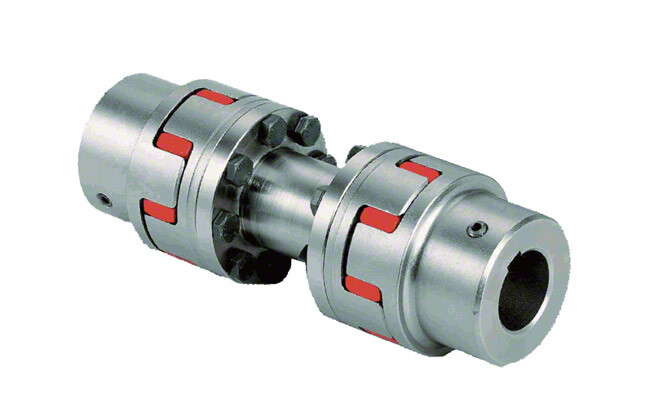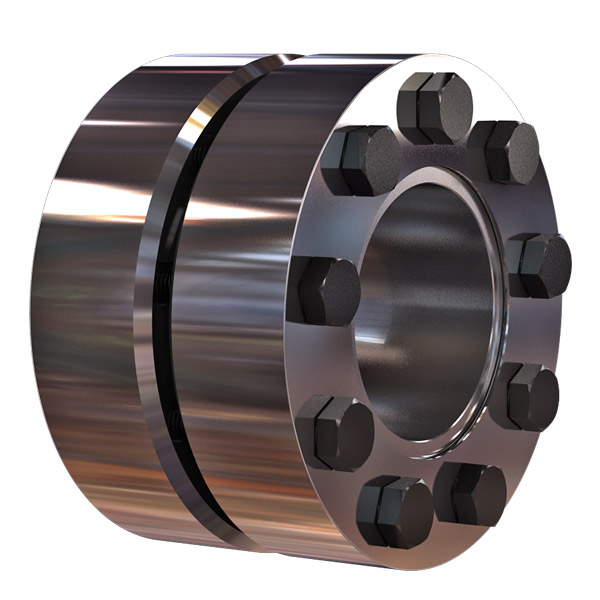Shaft coupling for escalator systems
Introduction to Shaft Couplings
Shaft couplings are critical components in escalator systems, ensuring the smooth and efficient transfer of mechanical power between shafts. Their design and material must meet stringent standards to guarantee operational reliability and longevity.
The Role of Shaft Couplings in Escalators
In escalator systems, shaft couplings serve to connect the drive motor to the step chain, facilitating the seamless operation of the entire system. This connection must be robust and capable of withstanding significant loads and stresses.
Types of Shaft Couplings
Various types of shaft couplings are utilized in escalator systems, each with distinct characteristics and applications. Understanding the differences helps in selecting the right coupling for specific operational needs.
Rigid Couplings
Rigid couplings are utilized when precise shaft alignment is crucial. They offer high torque transmission but require precise alignment to avoid placing undue stress on the shafts. These are often used in high-precision applications where alignment is not an issue.
Flexible Couplings
Flexible couplings can accommodate misalignment and absorb shocks and vibrations. They are suitable for applications where shafts are not perfectly aligned or where there are dynamic loads. These include elastomeric and metallic types, each offering unique benefits.
Fluid Couplings
Fluid couplings use hydraulic fluid to transmit torque between shafts, providing a smooth start-up and overload protection. They are ideal for applications requiring controlled acceleration and deceleration.
Benefits of Using Shaft Couplings in Escalators
Shaft couplings enhance escalator performance by reducing maintenance needs, minimizing downtime, and extending the lifespan of mechanical components. They help in maintaining alignment, absorbing shocks, and compensating for misalignments.
Factors Affecting Shaft Coupling Selection
Choosing the right shaft coupling involves considering various factors such as torque requirements, misalignment, space constraints, and environmental conditions. Each factor plays a vital role in ensuring the optimal performance of the escalator system.
Torque Transmission Requirements
The torque that needs to be transmitted determines the strength and type of coupling. Higher torque applications might require rigid or metallic flexible couplings, while lower torque can use elastomeric types.
Accommodation of Misalignment
Shaft alignment is rarely perfect, and couplings need to accommodate angular, parallel, and axial misalignments. Flexible couplings are often chosen for their ability to handle such deviations.
Environmental Considerations
Environmental factors such as temperature, humidity, and exposure to chemicals influence the choice of materials for shaft couplings. Selecting the appropriate materials ensures durability and reliability under specific conditions.
Maintenance and Longevity
Easy maintenance and long service life are crucial for escalator systems. Couplings that require minimal maintenance and offer high durability reduce operational costs and downtime.
Material Selection for Shaft Couplings
The materials used in shaft couplings can range from metals like steel and aluminum to polymers and composites. The choice of material impacts the strength, flexibility, and corrosion resistance of the coupling.
Installation and Alignment
Proper installation and alignment of shaft couplings are essential for optimal performance. Incorrect installation can lead to premature failure and increased maintenance costs.
Standards and Certifications
Compliance with industry standards and certifications ensures the reliability and safety of shaft couplings. Selecting couplings that meet recognized standards guarantees adherence to quality and performance criteria.
Future Trends in Shaft Coupling Technology
Advancements in materials science and engineering are leading to innovative coupling designs that offer improved performance, efficiency, and durability. Future trends include smart couplings with sensors for real-time monitoring.

Conclusion
Shaft couplings play a pivotal role in the efficient operation of escalator systems. Understanding their types, selection criteria, and benefits can significantly enhance system performance and reliability.
What are the three types of coupling?

The three main types of coupling are rigid couplings, flexible couplings, and fluid couplings. Rigid couplings are used when precise alignment is necessary, flexible couplings accommodate misalignment and absorb shocks, and fluid couplings provide smooth torque transmission using hydraulic fluid.
What coupling is used to connect two shafts?

To connect two shafts, the common couplings used include:
- Rigid Couplings: Used for precise alignment, offering high torque transmission with minimal flexibility.
- Flexible Couplings: Ideal for applications with misalignment, these include elastomeric and metallic types that absorb vibrations.
- Fluid Couplings: Provide smooth torque transmission and overload protection using hydraulic fluid.
What are the two general types of shaft couplings?
The two general types of shaft couplings are rigid couplings and flexible couplings. Rigid couplings are used where precise alignment is crucial, while flexible couplings are used to accommodate misalignments and absorb shocks and vibrations.
HZPT Company Overview
HZPT, located in Hangzhou, Zhejiang Province, is a modern company that integrates R&D, learning, production, and foreign trade. We adhere to the core value of “integrity” as our business philosophy, fostering unity, progress, and innovation. HZPT focuses on the research and innovation of coupling products, with a presence in Asia, Europe, Africa, and North America. We are committed to becoming a globally influential international group.
Our company specializes in producing various coupling products, including drum couplings, spring pin couplings, serpentine spring couplings, universal couplings, star-shaped couplings, expansion couplings, diaphragm couplings, and tire couplings. We have a comprehensive and scientific quality management system with our own technology development and testing departments, holding certifications like CQC, ISO, and CE. We provide excellent sales service and technical support to our clients.
Why Choose HZPT?

We offer several compelling reasons to choose our products:
- High-Quality Standards: Our couplings are manufactured to the highest standards, ensuring reliability and longevity.
- Innovative Designs: We focus on continuous innovation to improve the performance and efficiency of our coupling products.
- Comprehensive Support: Our team provides exceptional technical support and customer service, ensuring seamless operation and maintenance.
- Global Reach: With clients across multiple continents, our products are trusted worldwide, reflecting our commitment to quality and excellence.
- Certified Quality: We hold several certifications, including CQC, ISO, and CE, affirming our adherence to international quality standards.
Partner with us to experience top-notch coupling solutions designed to meet your specific needs, backed by unparalleled technical support and customer service.